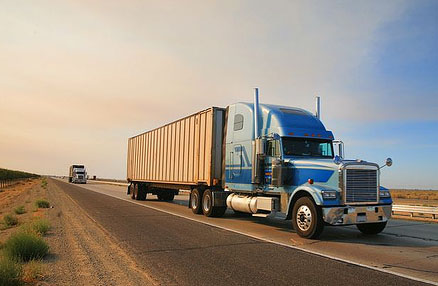 Yesterday I wrote about new fuel economy standards for big rig trucks. But Megan McArdle asked a good question: why do we even need them? For ordinary cars, you can argue that consumers aren’t especially rational and don’t properly consider the long-term cost of operation, so they need to be nudged into saving themselves money. But big rigs are commercial vehicles purchased by steely-eyed operators who look carefully at long-term cost of ownership and are keenly aware of how fuel costs play into this. So if truck manufacturers can make more efficient vehicles, the market should have forced them to do it long ago.
Yesterday I wrote about new fuel economy standards for big rig trucks. But Megan McArdle asked a good question: why do we even need them? For ordinary cars, you can argue that consumers aren’t especially rational and don’t properly consider the long-term cost of operation, so they need to be nudged into saving themselves money. But big rigs are commercial vehicles purchased by steely-eyed operators who look carefully at long-term cost of ownership and are keenly aware of how fuel costs play into this. So if truck manufacturers can make more efficient vehicles, the market should have forced them to do it long ago.
So what’s the deal? A reader with experience in the field sets me straight:
You don’t understand the market for big rigs. A tractor typically has three types of owners in its life:
- The original buyer: Either a manufacturer with a private fleet that it uses to get its products to market (e.g., Sherwin-Williams), or one of the very rare firms with enough cash to afford new units. They run it for 1-2 years (or 150,000 miles), when the components go off-warranty and are at risk for breakdowns — and then trade it in.
- The quality aftermarket: The second or third owners, who can’t afford new units. Most big fleets are in this group. They get the best used models and run them until the math stops working for them. (How long this takes depends on the type of trip and cargo hauled. Long-haul is easier than city driving, but a nasty breakdown in Montana can take you off-road for two days. Also, perishable cargo or just-in-time components have to keep moving.)
- The beaters: The third, fourth or fifth owners, who either can’t afford quality yet, don’t care, or find it cheaper to fix them.
There’s no incentive for a manufacturer to put money into fuel efficiency. Groups two and three care about fuel cost, but they’re never buying new trucks. Group one probably doesn’t own the unit long enough to recoup even 30% efficiency. Because even the best stuff gets beaten to crap, everyone buys on price. If your first high-efficiency models cost a lot more, sales would drop.
I was assigned to Bendix truck brakes for about a year, and it was a master class in planned obsolescence. Bendix made parts that lasted 3-4 years — best on the market — but nobody wanted them, because they didn’t own the models long enough to get a return on the value.
Still, even with that said, wouldn’t a carbon tax or increased fuel taxes accomplish the same thing as stricter CAFE standards but more efficiently? Probably. But I’ll let Mark Kleiman speak for me on that: “As soon as the Tea Party has been ground into the dust and the GOP transformed into a party capable of seeing reason, we can talk about it. In the meantime, kudos to the President for using his executive powers to do the right thing. And recall that none of his Republican opponents would have done the same.”















